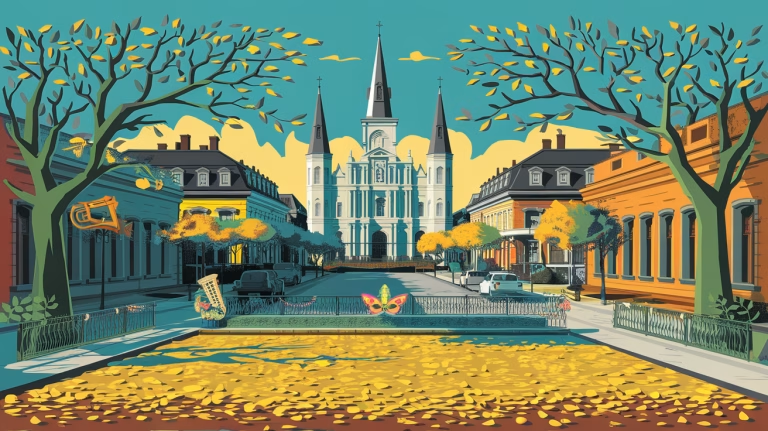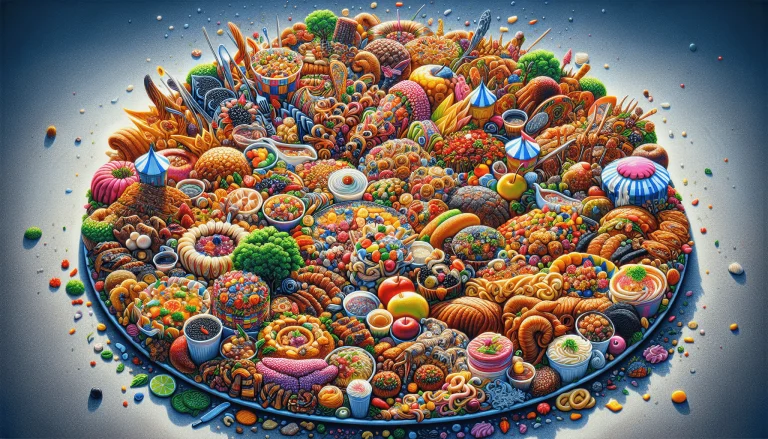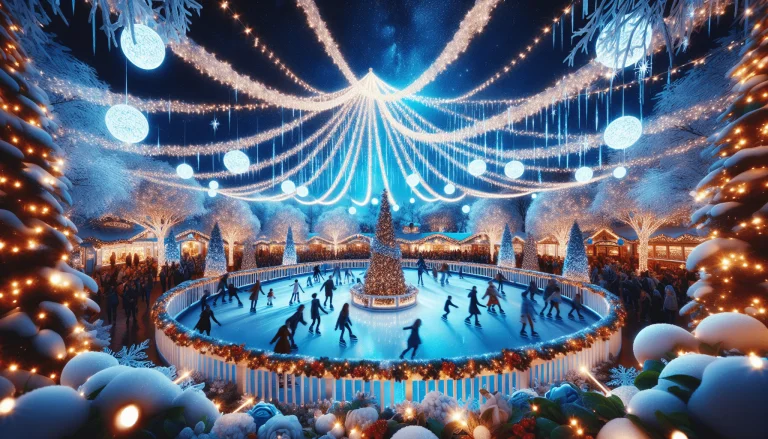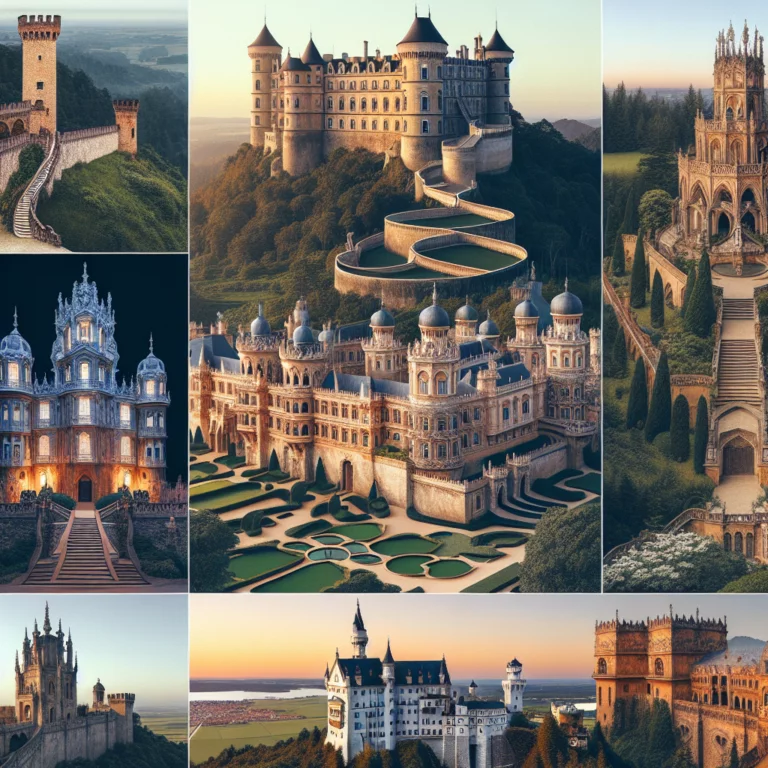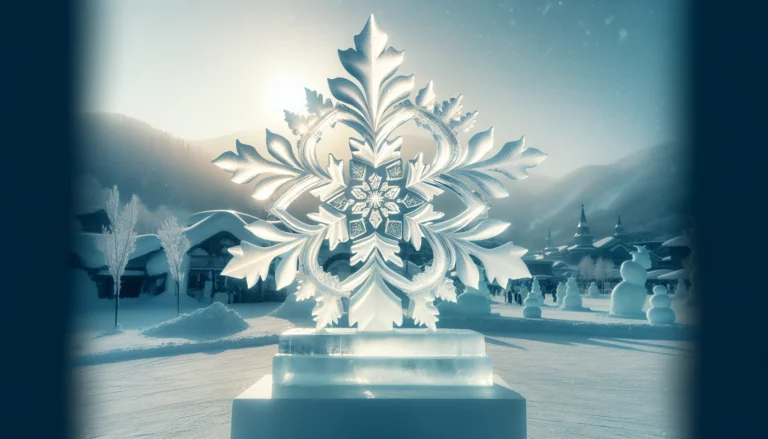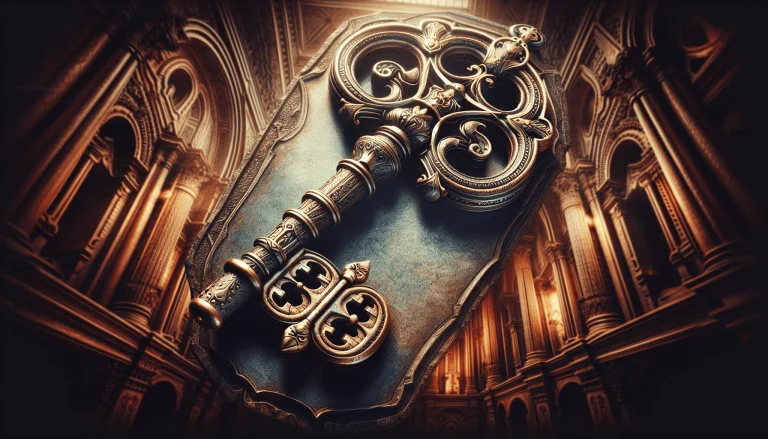Cultural Festivals: A World Of Celebration At Your Fingertips
Get ready for a whirlwind adventure of vibrant colors, tantalizing aromas, and infectious rhythms as you step into the fascinating world of cultural festivals. From the extravagant Carnival in Rio de Janeiro to the awe-inspiring Lantern Festival in Taiwan, these festivals offer a kaleidoscope of cultural experiences right at your fingertips. Immerse yourself in age-old traditions, sample delectable regional cuisines, and marvel at the creativity of local artisans. Whether you’re a seasoned traveler or a curious explorer, these festivals will ignite your wanderlust and leave you with lifelong memories. So pack your bags, embark on a journey of discovery, and let the allure of cultural diversity enrich your soul. The world of celebration awaits you.
Understanding Cultural Festivals
Cultural festivals are vibrant and lively celebrations that showcase the unique customs, traditions, and heritage of different communities around the world. These festivals provide a platform for people to come together and celebrate their shared identities, allowing for an exchange of cultural knowledge and a deeper understanding of diversity.
Definition of cultural festivals
Cultural festivals can be defined as organized events that celebrate and promote the cultural heritage of a particular community or region. These festivals often include various activities such as music, dance, food, art, fashion, and traditional practices. They serve as a way to preserve and showcase the roots and identity of a culture while promoting inclusivity and unity.
Significance of cultural festivals in society
Cultural festivals play a vital role in society by fostering a sense of belonging, identity, and community among individuals. They provide opportunities for people to connect with their roots and celebrate their cultural heritage, creating a shared sense of pride and belonging. Moreover, cultural festivals facilitate intercultural dialogue, helping to bridge gaps and promote understanding among different communities.
Examples of popular cultural festivals around the world
Throughout the globe, there are numerous popular cultural festivals that attract visitors from all corners of the world. The Carnival in Rio de Janeiro, Brazil, is one such festival that showcases the vibrant culture of Brazil through colorful parades, samba music, and extravagant costumes. The Holi Festival in India is another famous celebration where people come together to celebrate the arrival of spring by throwing vibrant colored powders at each other. Other notable cultural festivals include Oktoberfest in Germany, Dia de los Muertos in Mexico, and Chinese New Year celebrations in various Asian countries.
Cultural Festivals and Food
Food is an integral part of any culture, and cultural festivals provide the perfect platform to showcase the diverse and delicious culinary practices from around the world.
Influence of culture on food traditions
Food traditions are deeply influenced by culture and reflect the history, geography, climate, and beliefs of a region. The ingredients, flavors, cooking methods, and presentation of food all play a significant role in showcasing the unique cultural practices of a community. From spicy curries in India to sushi in Japan or barbecue in the United States, cultural festivals allow visitors to explore and appreciate the rich tapestry of global cuisine.
Food festivals as cultural celebrations
Food festivals are an essential aspect of cultural celebrations as they provide an opportunity for people to connect and bond over their love for food. These festivals often feature a wide range of food stalls and vendors offering traditional dishes from various regions. Visitors can sample authentic flavors, explore new tastes, and indulge in the gastronomic delights of different cultures. Food festivals not only promote culinary traditions but also provide economic opportunities for local businesses and farmers.
Showcasing unique culinary practices at cultural festivals
Cultural festivals go beyond just local cuisine and often feature unique culinary practices that are passed down through generations. For example, the Oaxacan Food Festival in Mexico showcases traditional mole sauces made from scratch using a variety of ingredients. In South Korea, the Kimchi Festival celebrates the country’s most famous fermented dish, allowing visitors to learn about the intricate process of making kimchi and even try their hand at it. These festivals provide a platform for preserving and promoting cultural food practices while allowing visitors to fully immerse themselves in the experience.
Art and Traditional Practices at Cultural Festivals
Art and traditional practices are significant components of cultural festivals as they provide a visual representation of a community’s heritage and craftsmanship.
Representation of traditional crafts and arts
Cultural festivals often exhibit traditional arts and crafts that have been passed down through generations. These can include handcrafted textiles, pottery, sculptures, paintings, and intricate woodwork. By showcasing such artistic creations, festivals provide a platform for local artisans to gain recognition, preserve traditional craftsmanship, and generate income.
Practices rooted in cultural festivals
Many cultural festivals involve traditional practices that hold great cultural and social significance. For example, the San Fermin Festival in Pamplona, Spain, is famous for its running of the bulls, where participants run alongside bulls through the streets. This tradition dates back to the 14th century and is a central highlight of the festival. Similarly, the Chinese Lantern Festival is celebrated with the release of thousands of colorful lanterns into the night sky, symbolizing good fortune and unity.
Importance of preserving traditional arts through festivals
Cultural festivals act as important platforms for preserving traditional arts that are at risk of being lost or forgotten over time. By showcasing and promoting traditional craftsmanship, festivals contribute to the preservation of cultural heritage and the passing down of skills from one generation to the next. Additionally, festivals give artisans an opportunity to educate visitors about their craft, fostering appreciation and understanding of traditional arts.
Modern Cultural Expressions in Festivals
Cultural festivals have evolved over time to incorporate modern elements, resulting in a fusion of traditions and modernity.
Fusion of traditions and modernity in festivals
In an ever-changing world, cultural festivals have adapted to embrace modern influences while retaining their unique cultural identities. This fusion can be seen in various aspects such as music genres, dance styles, fashion trends, and the inclusion of contemporary art forms. Festival organizers and participants are creatively combining traditional elements with modern expressions, resulting in a vibrant and dynamic celebration of culture.
Influence of globalization on cultural festivals
Globalization has had a significant impact on cultural festivals, enabling the exchange of ideas, practices, and artistic forms on a global scale. Festivals now incorporate influences from different cultures, allowing for the celebration of multiculturalism and diversity. This cross-pollination of traditions and ideas enriches cultural festivals, creating a global platform for dialogue and understanding.
Evolution of cultural festivals in the modern context
In the modern context, cultural festivals have evolved to cater to changing tastes, preferences, and demographics. Festivals often include activities and performances that appeal to a wider audience, attracting both locals and tourists. Furthermore, festivals have embraced technology and social media platforms to reach a larger audience and engage participants in interactive experiences. From virtual reality installations to live streaming of performances, the modernization of cultural festivals ensures their continued relevance and accessibility.
Role of Music and Dance in Cultural Festivals
Music and dance play a crucial role in cultural festivals, serving as powerful and captivating forms of cultural expression.
Cultural storytelling through music and dance
Music and dance have long been used as mediums for storytelling, preserving cultural narratives, and conveying emotions. They provide a captivating way to express traditions, beliefs, and values. Whether it’s African drumming, Indian classical dance, or Celtic folk music, these art forms bring communities together, allowing them to share their stories, history, and collective experiences.
Traditional music and dance forms in festivals
Cultural festivals celebrate traditional music and dance forms, enabling visitors to witness the richness and diversity of these art forms firsthand. From flamenco performances in Spain to the Maori Haka dance in New Zealand or the rhythmic beats of samba in Brazil, traditional music and dance performances create an immersive cultural experience, leaving a lasting impact on spectators.
Impact of popular music and dance on cultural festivals
Popular music and dance genres have also made their way into cultural festivals, reflecting the evolving tastes and preferences of audiences. Festivals now often include contemporary music acts, such as international pop stars or local bands, attracting a wider range of participants. This integration of popular music and dance provides a broader appeal, ensuring the longevity and popularity of cultural festivals.
Fashion and Costumes at Cultural Festivals
Fashion and costumes at cultural festivals showcase the unique attire and traditional outfits associated with different cultures.
Traditional attires and their significance
traditional attire plays a significant role in cultural festivals, representing the history, customs, and identity of a community. These outfits often feature vibrant colors, intricate embroidery, and unique patterns, reflecting the region’s climate, traditions, and social mores. Traditional costumes serve as a visual representation of cultural pride and heritage.
Expression of culture through fashion at festivals
Cultural festivals provide a platform for individuals to express and celebrate their culture through fashion. Whether it’s the kimonos worn during the Cherry Blossom Festival in Japan or the elaborate saris worn during Diwali celebrations in India, fashion at festivals becomes a medium of self-expression and cultural appreciation. Visitors often dress up in traditional attire, making cultural festivals a colorful and visually stunning affair.
Influence of contemporary fashion on traditional festival attire
In recent times, there has been a growing influence of contemporary fashion on traditional festival attire. Designers and stylists are incorporating modern elements into traditional outfits, creating a fusion of different styles. This blending of traditional and contemporary fashion not only appeals to younger generations but also allows for a dynamic celebration of culture, keeping traditional attires relevant in the modern world.
Cultural Festivals and Community Bonding
Cultural festivals serve as a powerful tool for community bonding and fostering connections among individuals.
Role of festivals in community gathering
Cultural festivals create a sense of unity and belonging within a community by bringing people together for a collective celebration. These festivals provide a platform for neighbors, friends, and families to come together and strengthen their relationships. The shared experiences, festivities, and traditions form the foundation for a stronger sense of community and social cohesion.
Strength of relationships through cultural celebrations
Cultural festivals strengthen interpersonal relationships by promoting understanding, empathy, and respect among individuals. By celebrating diversity and inclusivity, festivals encourage dialogue and create opportunities for people from different backgrounds to interact, fostering a sense of shared humanity. Festivals often contribute to building long-lasting bonds that extend beyond the event itself, forging friendships and connections that carry on throughout the year.
Festivals as a platform for integration and unity
Cultural festivals also play a crucial role in promoting integration and unity in multicultural societies. These festivals provide an opportunity for different ethnic groups and immigrant communities to share their cultural heritage with the broader population. By embracing diversity and promoting intercultural dialogue, festivals contribute to the harmonious coexistence of various communities, creating a stronger and more inclusive society.
Cultural Festivals as Tourist Attractions
Cultural festivals have become major tourist attractions, drawing visitors from around the world who are eager to experience the vibrancy and authenticity of different cultures.
Promotion of tourism through festivals
Cultural festivals attract tourists by offering an immersive cultural experience that is both educational and entertaining. Tourists are drawn to the opportunity to witness traditional practices, taste authentic cuisine, listen to traditional music, and engage with local customs. By promoting these festivals, destinations can boost tourism, generate revenue, and create opportunities for local businesses.
Economic benefits of cultural festivals
Cultural festivals have significant economic benefits for the host communities. They stimulate the local economy by creating job opportunities in various sectors such as hospitality, transportation, and retail. Local artisans and vendors also benefit from increased sales and exposure during festivals. Moreover, festivals often attract international tourists who contribute to the local economy through spending on accommodation, food, and souvenirs.
Role of cultural festivals in destination branding
Cultural festivals contribute to the branding and promotion of a destination by highlighting its unique cultural identity and heritage. Festivals become synonymous with a particular place, attracting visitors who are eager to explore and engage with the local culture. Over time, these festivals become an integral part of a destination’s image, creating a distinct identity that sets it apart from other destinations.
Interactive Experiences at Cultural Festivals
Cultural festivals offer interactive experiences that allow visitors to immerse themselves in the cultural traditions and gain a deeper understanding of different communities.
Hands-on experiences for deeper cultural understanding
Many festivals offer hands-on experiences that enable visitors to actively participate in cultural traditions. These experiences can range from traditional craft workshops, where participants learn the art of pottery-making or textile weaving, to cooking classes that teach traditional recipes. These interactive activities provide a deeper understanding of the culture and create lasting memories for visitors.
Cultural workshops and events within the festival
Cultural workshops and events are often organized as part of festivals to educate and entertain visitors. These workshops can cover a wide range of topics such as traditional music lessons, dance classes, language tutorials, or storytelling sessions. By offering these workshops, festivals provide visitors with an opportunity to engage with local experts and learn about the cultural nuances and practices.
Encouraging visitor participation at cultural festivals
Cultural festivals encourage visitor participation through activities such as parades, processions, and interactive performances. Visitors are often encouraged to join in the festivities by wearing traditional costumes, dancing along with performers, or trying out traditional musical instruments. This active participation creates a sense of inclusivity and allows visitors to fully immerse themselves in the cultural celebration.
Respecting and Preserving Cultural Festivals
While cultural festivals are a celebration of diversity and heritage, it is crucial to respect and preserve the authenticity and cultural sensitivity associated with these celebrations.
Challenges faced in maintaining authenticity
One of the major challenges in preserving cultural festivals is maintaining their authenticity in the face of modernization and commercialization. As festivals gain popularity, there is a risk of diluting their cultural significance and turning them into mere spectacles for entertainment. It is important for organizers and participants to strike a balance between innovation and tradition, ensuring that the essence and integrity of the festival are preserved.
Role of the global community in preserving cultural celebrations
Preserving cultural celebrations requires the collective effort of the global community. International organizations, governments, and individuals all play a vital role in safeguarding and promoting cultural festivals. Respecting intellectual property rights, supporting local artisans and performers, and engaging in responsible tourism practices are some ways in which individuals can contribute to the preservation of cultural celebrations.
Importance of respect and cultural sensitivity at festivals
Respect and cultural sensitivity are essential when participating in cultural festivals. Visitors should familiarize themselves with the customs, traditions, and etiquette of the hosting community to ensure that they are respectful and do not inadvertently cause offense. By approaching cultural festivals with an open mind and a willingness to learn, visitors can engage in meaningful cultural exchange and contribute to the preservation of these important celebrations.
In conclusion, cultural festivals provide a unique opportunity to explore and appreciate the richness of different cultures around the world. Through music, dance, food, art, fashion, and traditional practices, these festivals celebrate diversity, foster community bonding, and preserve cultural heritage. They serve as a gateway to understanding, respect, and unity among people from different backgrounds. Whether as a participant or spectator, experiencing a cultural festival is a truly transformative and enriching experience that can broaden horizons and create lasting memories. So, why not embark on a global journey of celebration and immerse yourself in the vibrant world of cultural festivals?


